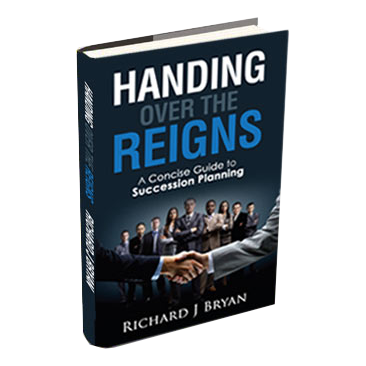The combination of family and business is always a challenging one – and never more so than during the changing of the guard. As I’ve seen first-hand, both during my travels as a succession planning speaker and in my experience taking over my family’s business, firm boundaries, and indisputable objectivity are essential to the succession planning process. During a tumultuous and emotional time, as families strive to maintain composure and unity, the governance of your company’s board can be critical to keeping an even keel.
Key Succession Support Structures
There are three common types of governing bodies that can help to provide support for family businesses during a succession. In the best of circumstances, a company will have at least one of these bodies already in place and functioning for some time. Ideally, an established board can shoulder some of the emotional and much of the operational weight, balancing charged emotions with a healthy dose of objectivity and calm. The most common types:
1. Active Board of Directors: Members of this type of board have fiscal responsibilities to the company—members are held accountable for their input and have a legal obligation to the company’s ownership. Larger companies may invite external independent directors to join.
2. Strategic Continuity Stewards Council: This is a cross-functional representation of people in varying positions of influence and power, both within and outside of the company and the family, with the role of maintaining the values of the company and ownership family.
3. Supplemental Board of Advisors: This is a non-binding group whose singular mission is to strategically guide the ownership towards, and support them in, high-performance leadership and enterprising outcomes. Members have no legal authority or liability.
So which of these “succession support structures” is right for your situation? It’s a question I’m often asked on the succession planning speaker circuit; while the answer is complex and will always be personal, it may help to further unpack the role of the Board of Advisors a bit.
Optimizing Your Board of Advisors
About a third of privately held businesses are actively engaged with a Board of Advisors. In addition to providing an extra layer of decision insight and support to enterprise planning for succession, it’s an active commitment to the company’s continuity – and ultimately, a competitive advantage as the business moves forward into its next iteration.
As a succession planning speaker, I’m often asked for common succession planning scenarios in which a Board of Advisors can be particularly helpful. Here are a handful of scenarios:
- Inject diverse and objective perspectives into the “closed-loop” of a family business
- Expand the enterprise’s subject-matter expertise beyond one’s immediate industry
- Share successful practices and pitfalls from a wide range of businesses or verticals
- Challenge one’s current strategies, structures, and systems with fresh alternatives
- Help ownership and leadership to establish, maintain or elevate company culture
- Balance profitability and human capital investment for a secure future workforce
- Serve as enterprise ambassadors to help enhance the company’s external image
- Contribute to the company’s social capital with network, connections and more
- Bring objectivity to difficult decisions; help leaders navigate resistance to change
Can you honestly think of a single company that wouldn’t benefit from most of these scenarios? Many of my succession planning clients that I engage with as a keynote speaker have similar reactions. So now that you’re on board with the idea (pun intended), let’s talk a bit about who should take part in this process.
Building Your Board of Advisors
Speaking very generally, your board should be comprised of 5 to 12 members, with 5 to 7 being optimal; an odd number is strongly recommended. According to a survey conducted by the Family Business Consulting Group, boards that include two or more outside independent advisors (but not a majority) are found to be effective; groups with a majority of outsiders, even more so. It’s also recommended that owners differentiate their Board of Advisors from any paid professionals who have a compensation-based stake in matters, as this may affect objectivity.
Finally, how do you find these important folks? Start by asking respected peers, professional groups and industry associations for recommendations. Local universities, chambers and governing boards can also be helpful. One seemingly dead-end conversation will often spark an incredibly fruitful chat, so don’t be afraid to let the process be what it must: organic.
Here’s to Your Business Success,
Richard J. Bryan
Need a deeper dive on this complex subject? Schedule a succession planning speaker keynote presentation by calling 877-316-3110. For more tips on how to create a succession plan, simply sign up for our mailing list.


